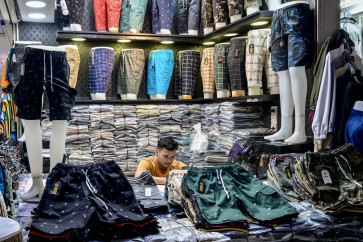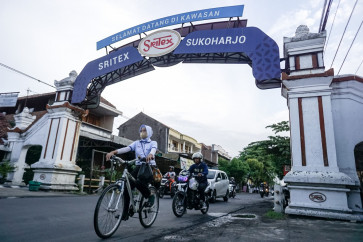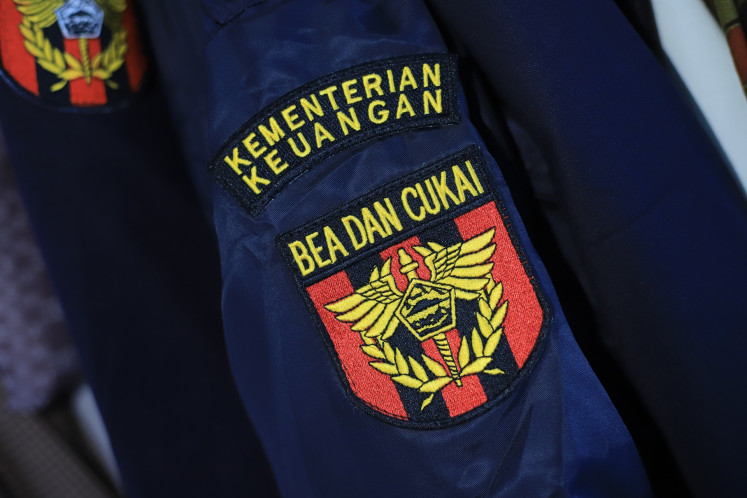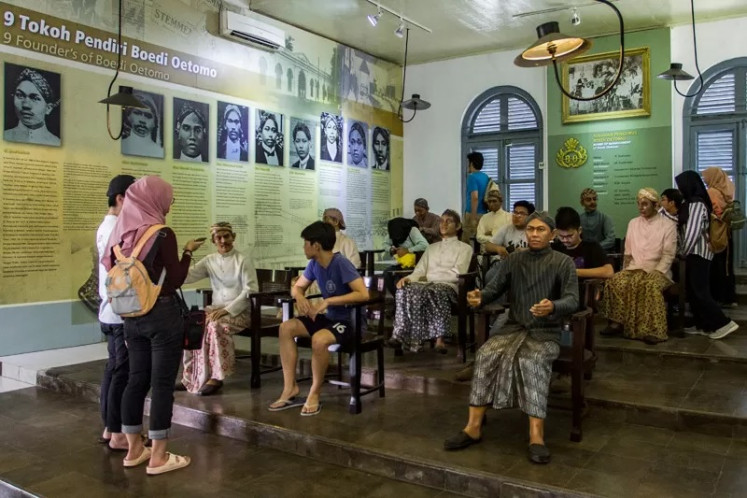Siblings preserve tradition of making bark cloth in C. Sulawesi
Despite being over 70, sisters Rangimpuasa and Sitilima seemingly never tire of scouring nearby woods to look for material for bark cloth, known as vuya
Change text size
Gift Premium Articles
to Anyone

D
espite being over 70, sisters Rangimpuasa and Sitilima seemingly never tire of scouring nearby woods to look for material for bark cloth, known as vuya.
The sisters live in the village of Pandere, Gumbasa district, Sigi regency, Central Sulawesi, around an hour-and-a-half drive from the provincial capital of Palu.
A rhythmic beating sound is common in the village as people there beat tree bark to produce garments.
They beat the tree bark with an instrument they call ike, a hammer-like tool made of stone and a wooden handle tied with rattan strands on a semi-circle log or a hard plank.
During the day, Rangimpuasa, 73, and Sitilima, 70, armed with a machete, will set off from their home to find tree bark to make vuya.
Only the fibrous inner bark from branches of the banyan or mulberry trees can be used to make vuya. The trees also must be over two years old and the branches measuring around 5 centimeters in circumference.
As the women are no longer strong enough to cut the higher branches, they are usually accompanied by their sons or grandchildren. Each piece of bark taken must be around half a meter long.
“The process of making vuya starts from nosisi, or skinning the tree bark, then notikuli, or cleaning the bark,” Sitilima said.
A person can produce two one-by-two meter sheets of vuya a week.
“The elderly women could at least produce between 10 and 12 sheets of vuya a month, but due to their old age, they could only make four sheets,” said granddaughter Asmidar, 28, who is learning the traditional craft.
According to Asmidar, activists from a non-governmental organization in Palu buy the vuya bark cloth and later send it to Bali and Kalimantan. An American company has also purchased the bark cloth, measuring one-by-two meters, at Rp 200,000 a piece.
The vuya buyers are apparently activists from the Jambata Foundation, an NGO concerned with environmental affairs and economic community empowerment in Palu. The foundation has so far been encouraging bark cloth production centers located around the Lore Lindu National Park to continue making the product.
The Jambata Foundation succeeded in marketing the bark cloth to the international market in 1999. Two companies from the US became their regular buyers. The Graphic Product Corporation, a company based in Illinois, placed an order for 600 pieces of vuya bark cloth at a value of US$1,440.
Blank Ink Incorporation from Columbia, USA, ordered 1,100 pieces of vuya, each measuring 65-by-95 centimeters.
Two years later, orders from both foreign companies stopped as people were unable to meet the demands of the two companies.
“It’s difficult to force the people to produce so much bark cloth because making vuya is a seasonal activity,” said foundation caretaker M. Sadik.









